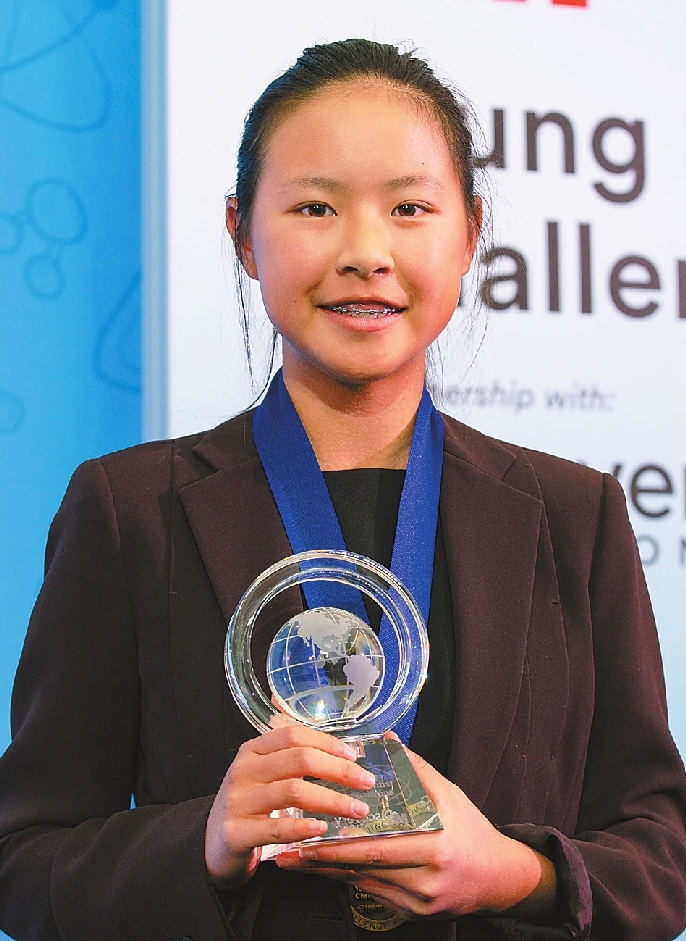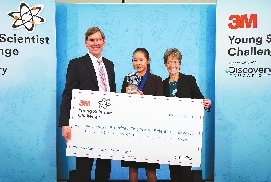

An average American 14-year-old has just started his or her freshman year in high school. They might be trying out for their school basketball team for winter sports or they could be auditioning for the school play. But Kara Fan is not the run-of-the-mill 14-year-old. She is America’s Top Young Scientist. “The moment before they called my name, I was really nervous because like the other finalists ... their presentations are really good and I thought like they would win,” the San Diego native told Yahoo Finance. “When they announced my name, I was really surprised actually.” To win that claim, Fan’s nano-particle liquid bandage had to surpass the experiments of hundreds of fifth to eighth graders as well as nine other finalists. The competition encouraged the participants to solve a global issue and included runner-up Caroline Crouchley’s environmentally safer and sustainable public transport train and fourth-place Camellia Sharma’s underground water leakage system. ‘I can spread the awareness of the antibiotic crisis’ Fan started developing her liquid bandage — using lemon leaf, silver nitrate, and a water-soluble polymer — in April 2019 to fight the overuse of antibiotics. According to the Centers for Disease and Prevention, roughly 2 million people every year suffer a bacterial infection in the United States and about 23,000 passed away as a result. If left alone, a UN study reported, drug-resistant diseases or the “superbug” could lead to 10 million deaths across the globe by 2050. “I can spread the awareness of the antibiotic crisis and just show them the statistics,” Fan said. “The overuse of antibiotics have led to antibiotic resistance infections and it’s going to kill a lot of people.” When Fan’s sprayable bandage dries on a person’s skin, it creates a thin layer that protects the wounded area while breaking the cell wall and killing the bacteria on the skin. After experimenting with copper nitrate to fight bacteria, switching to the silver nitrate ended up being the major catalyst to seeing results for her award-winning project. “Thousands of years ago, ancient people would use copper and silver to eat with and they would drink water from, like, copper bowls to kill bacteria,” Fan explained. “I found out that it didn’t work. So I used nano silver.” Sir Alexander Fleming’s discovery of penicillin — a type of antibiotic — is Fan’s favorite scientific discovery. That said, she doesn’t think humans should rely too heavily on penicillin. “It has saved millions of lives,” she said. “But since it’s been misused and overused, we should be aware of this crisis.” Following her years at Westview High School, Fan hopes to continue her biology track at Stanford University. Along with the US$25,000 cash prize she won on October 29, becoming America’s Top Young Scientist may help her get the private university’s attention. (SD-Agencies) | 
